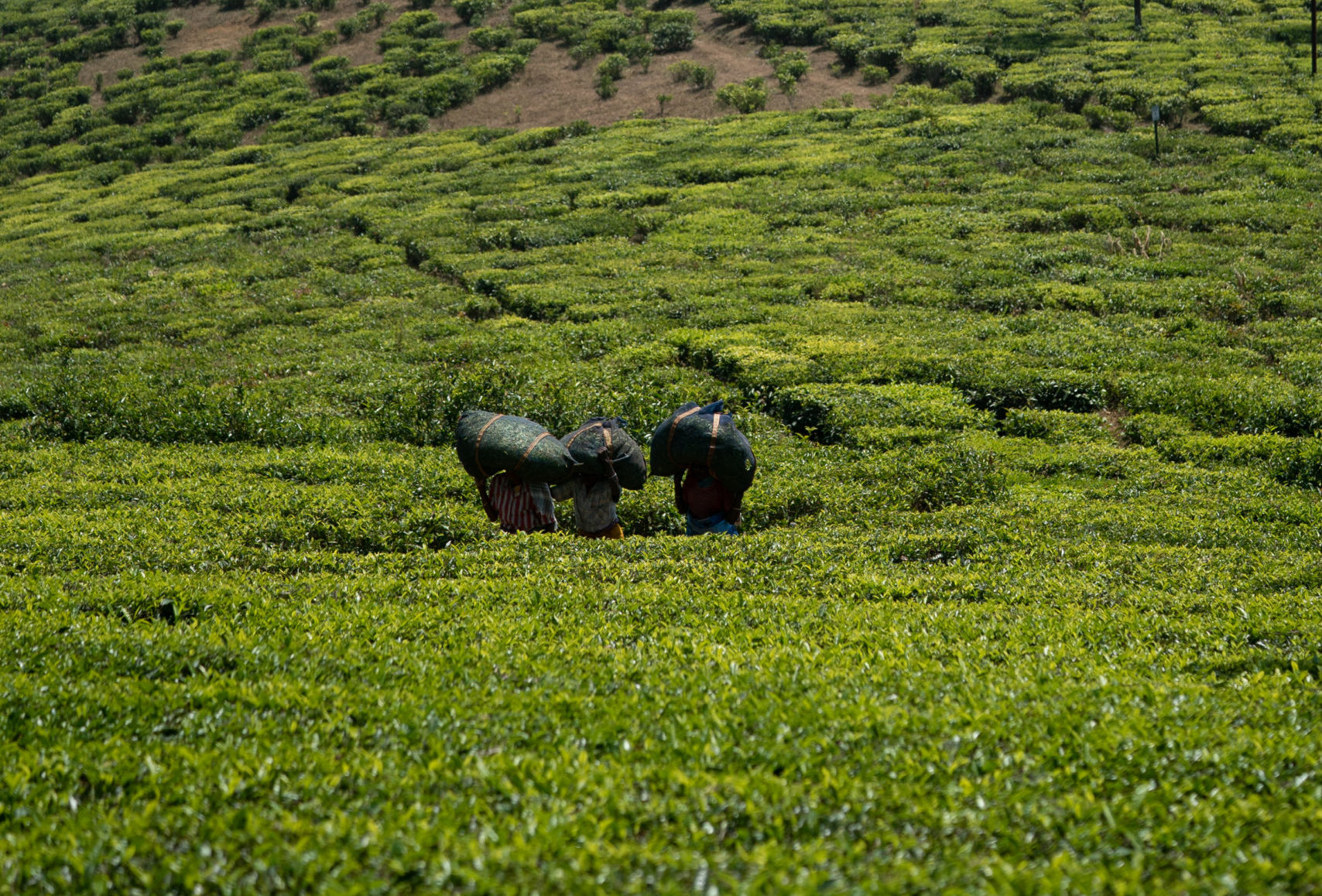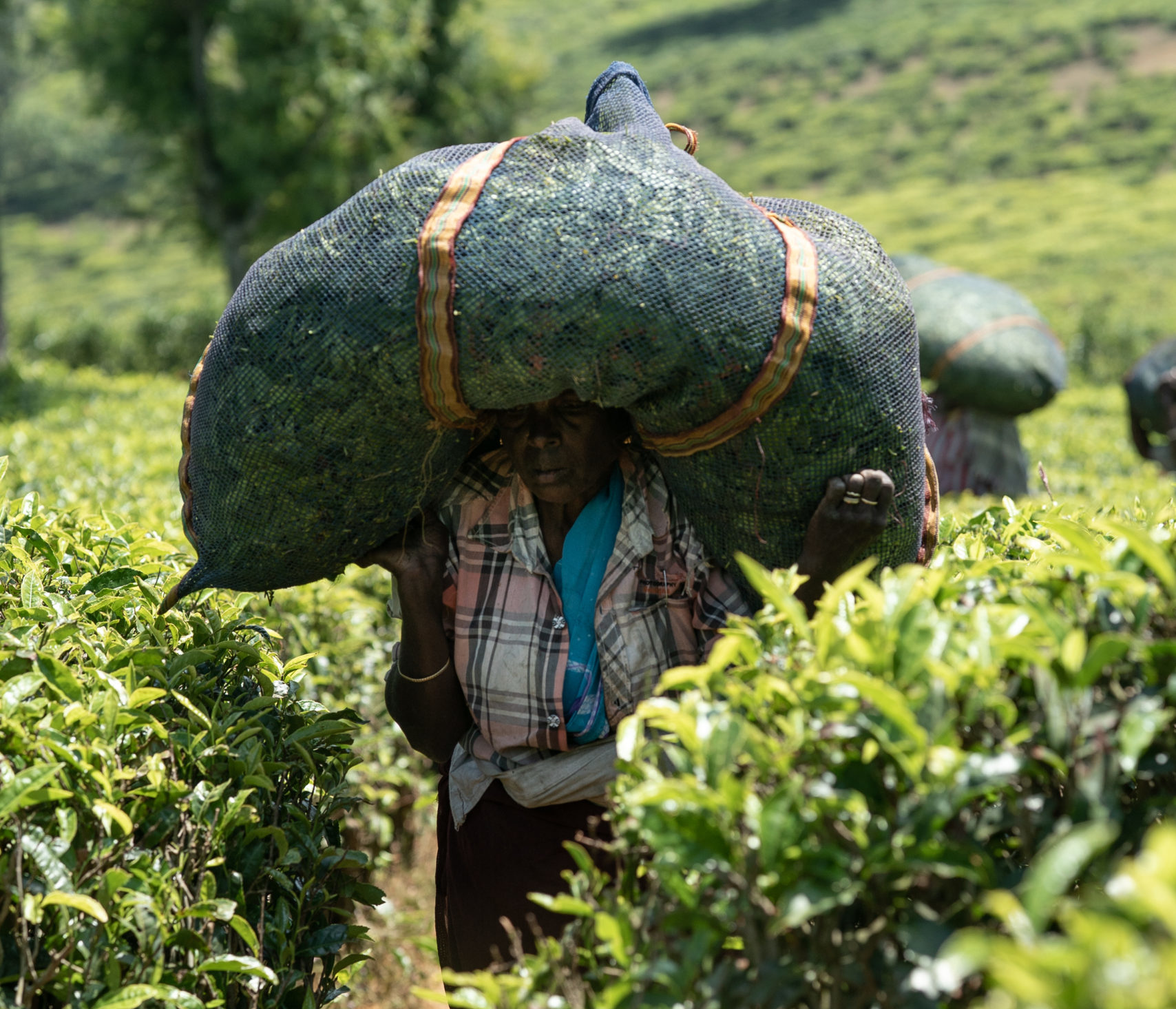Welcome to Fairtrade Fortnight 2023, an annual campaign led by Fairtrade Australia and New Zealand. This year’s theme is “For people and the planet,” and this blog post spotlights how Fairtrade supports and collaborates with tea farmers and workers.
Tea is the most popular drink in the world after water—an estimated 70,000 cups are drunk every second. Yet tea farmers and workers struggle to get a fair deal. This can have a very real and human cost. Small-scale tea farmers face the challenge of low and fluctuating prices for the green leaf that they sell because of increasing supply chain pressures to reduce tea prices. This reduces their already-low incomes and pushes them further into poverty.
The tea supply chain is a particularly complex one, characterised by its method of trade. Unlike other agricultural commodities, tea is primarily sold through auction centres worldwide with around 70% of the global tea trade conducted through auctions. Although the system appears to be a fair market in which prices are determined solely by supply and demand, a small number of companies dominate sales at each auction. The large companies have such purchasing power that they can often influence the demand, and thus price, of particular qualities and types of tea. Brokers and buyers have sometimes colluded to influence prices, lowering the price received by farmers; in 2005, the situation became so bad in Kenya that the National Chamber of Commerce called, unsuccessfully, for the elimination of tea auctions. What this means is that middlemen can take a large slice of the price paid by the factory for the growers’ tea.

Fairtrade mechanisms to support tea growers
Fairtrade works with both small-scale tea farmers and workers on tea plantations. Fairtrade Standards are designed to address the challenges detailed above by improving employment conditions, protecting the rights of workers on plantations, and supporting members of small-scale organisations in gaining more control within the tea supply chains to increase their incomes. Fairtrade Standards for tea act as a safety net against the unpredictable market, ensuring that growers always get a price that covers their costs of production. And the Standards now include quality requirements and guidance for workers’ on-site housing.
Fairtrade producer organisations receive the Fairtrade Minimum Price which is origin-specific, and a Fairtrade Premium paid to the producer organisations for community and economic investment. Additionally, Fairtrade has specific standards for plantations that support worker organisation and representation to negotiate with management and progress towards living wages. Workers need strong organisations to represent them in these negotiations. Our Hired Labour Standard greatly strengthens worker’s Freedom of Association in practice. We also changed the rules for the Fairtrade Premium, which already includes an additional payment of black tea, so workers can spend up to 20 per cent of the Premium on cash or in-kind benefits, or up to 50 per cent if the majority are migrant workers. They have invested their Fairtrade Premium into resources for better farming, so they can earn more money for their crops. On plantations, workers invest over 80% of their Premium in services for workers and their families and almost 11% in community services such as housing, education and healthcare.

Working together to address low wages in the tea industry
Fairtrade has long been championing and advocating for industry-wide change in the tea sector to address low wages. Working towards a living wage has been an aspiration within the Fairtrade Standard for years. Our Standard for Hired Labour states that plantations must start off paying the legal national minimum wage then progress towards a living wage.
In 2013, Fairtrade International, in collaboration with other partners started concerted work on living wages. In doing so, it commissioned the experts Richard and Martha Anker to adapt their method of calculating this wage to the needs of an agricultural worker (and of his/her family), running four pilot studies and working with local teams in South African wine grape farms, Dominican Republic banana plantations, Malawian tea plantations, and Kenyan flower plantations. The result was an assessment of expenses based on a three ‘basket’ scheme: food and nutrition costs, decent housing and other essential needs. After living wage benchmarks have been set, the next step is to tackle how companies can progress from paying legal minimum wages to paying a proper living wage. The idea is that workers can themselves negotiate for better pay and working conditions. They therefore need to be well represented by trade unions and strong organisations – a point that is well recognised in Fairtrade’s new Standard for Hired Labour. Progress towards living wages is a long journey and needs change across the sector but Fairtrade is committed to using our platform to drive this change.
Alongside this work on setting wage benchmarks and the promotion of wage bargaining, Fairtrade is also an active participant in industry initiatives such as Tea 2030, a global project to build a sustainable tea industry for the future, so that better wages become a commitment for everyone along the tea supply chain.
Fairtrade stands resolute in its mission to champion and support tea growers and workers. Through the implementation of the mechanisms detailed above in order to improve working conditions, protect workers’ rights and support small-scale organizations as they fight to gain more control of the supply chain. The Fairtrade Standard, Minimum Price and Premium are essential tools to achieve these goals. By supporting Fairtrade, we can continue to fight for a sustainable and equitable tea industry, one where everyone in the tea supply chain thrives.
Source(s):
- https://www.fairtrade.org.uk/farmers-and-workers/tea/
- https://www.fairtrade.org.uk/farmers-and-workers/tea/about-tea/
- https://www.fairtrade.org.uk/farmers-and-workers/tea/sukambizi-association-trust-malawi/

